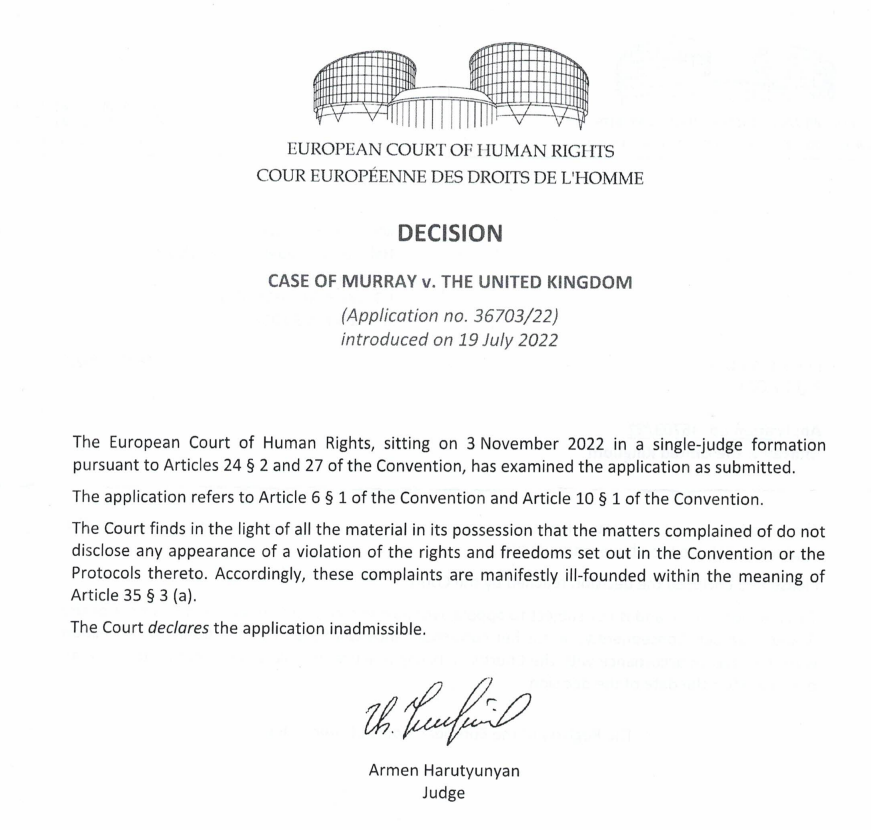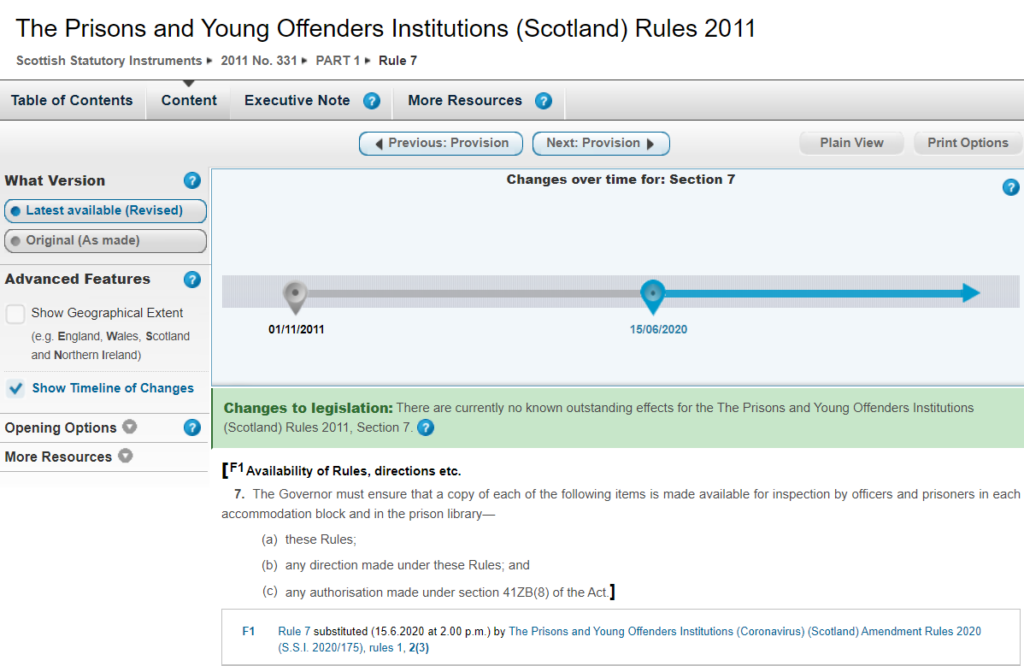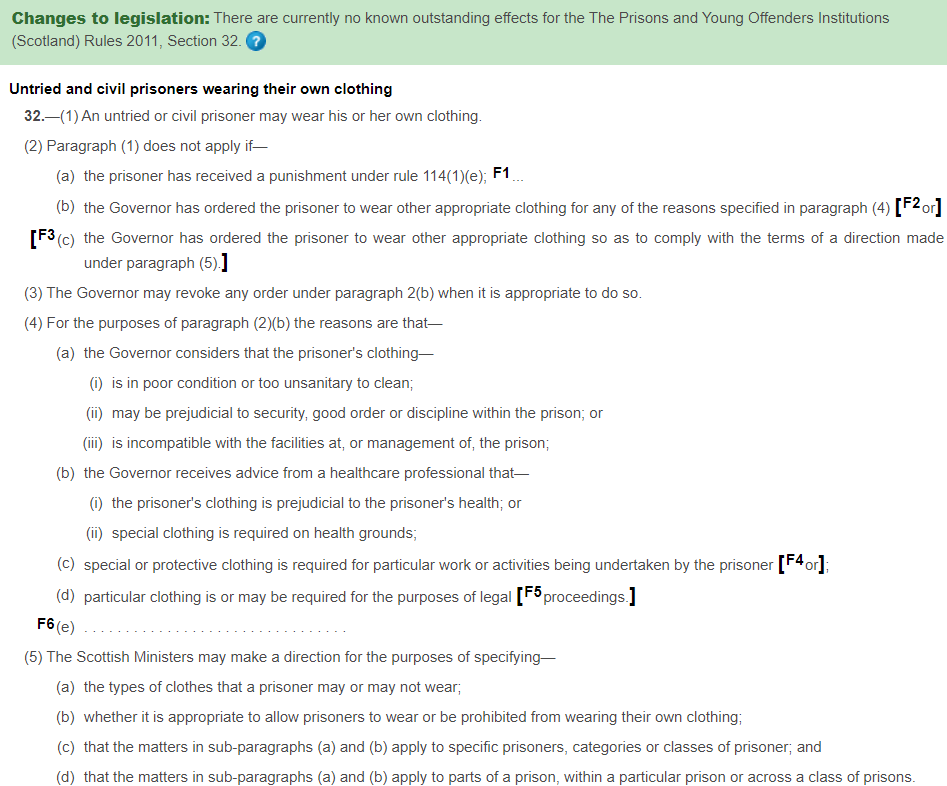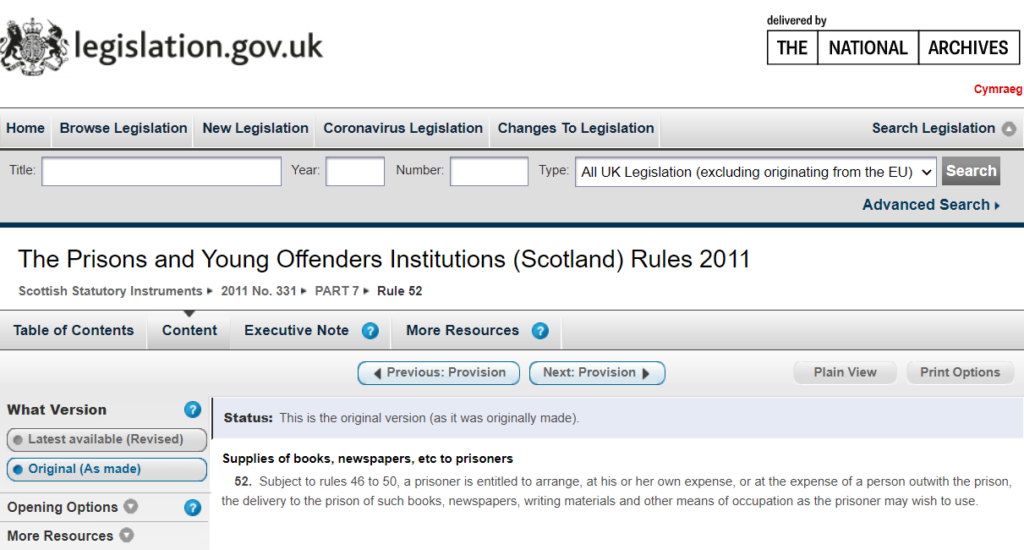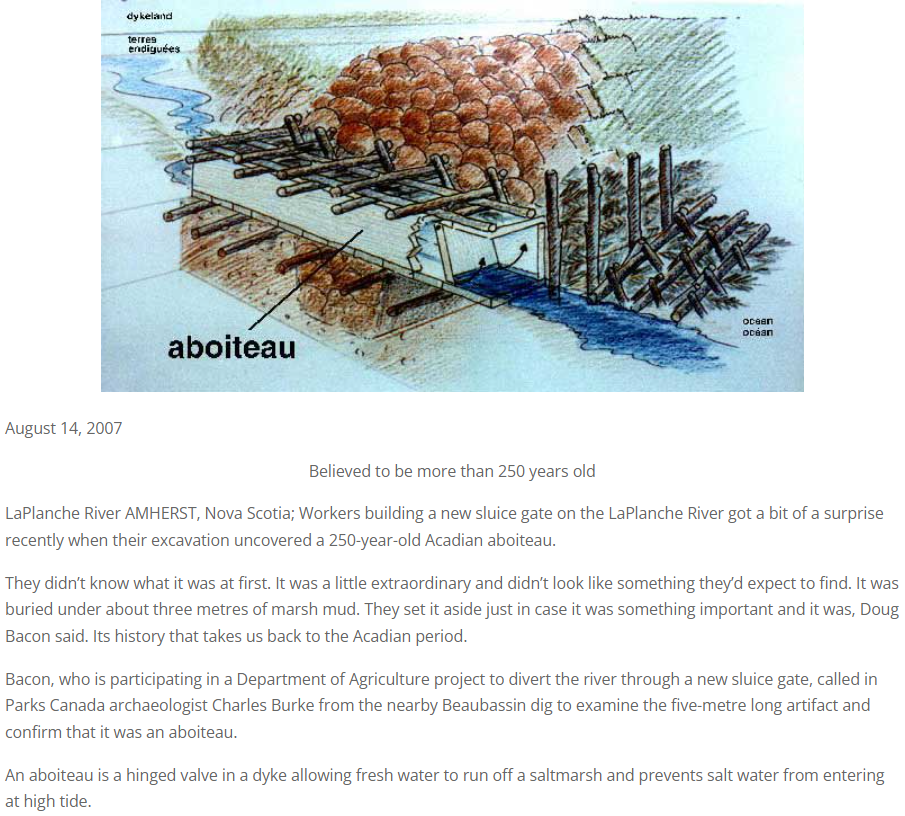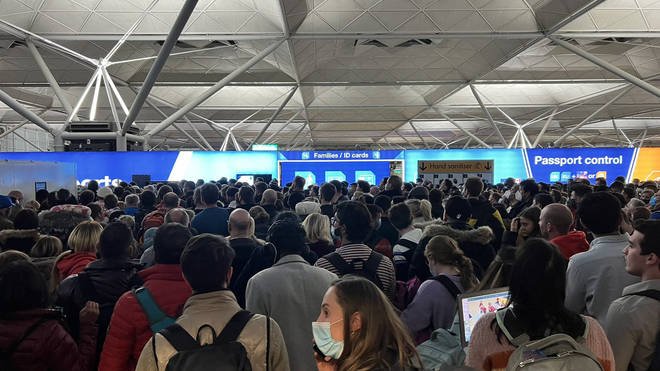Here is the detailed argument we submitted to the European Court of Human Rights in Strasbourg:
IN THE EUROPEAN COURT OF HUMAN RIGHTS:
CRAIG MURRAY
Applicant
v
THE UNITED KINGDOM
Respondent Government
SUPPLEMENTARY STATEMENT UNDER RULE 47(2)(b) OF THE RULES OF COURT
INTRODUCTION
1. This supplementary statement sets out the relevant domestic law and practice, and then makes supplementary submissions on why there have been violations of Articles 6 and 10 in this case.
2. The following abbreviations are used: (i) the Crown’s petition and complaint regarding the applicant (Additional Document No. 3) is referred to as “the contempt petition”; (ii) the High Court of Justiciary’s Opinion of 25 March 2021 (Additional Document No. 13) is referred to as “the High Court’s Opinion”; (iii) the applicant’s petition to the nobile officium (Additional Document No. 20) is referred to as “the nobile officium petition”; the High Court of Justiciary, Appeal Court’s Opinion dated 25 March 2022 (Additional Document No. 25) is referred to as “the Appeal Court’s Opinion”.
I. FACTS: RELEVANT DOMESTIC LAW AND PRACTICE
a. The Contempt of Court Act 1981
3. The Contempt of Court Act 1981 is a UK-wide statute. Section 11 gives the courts the power to prohibit the publication of information that has been withheld from the public in court proceedings. It provides:
“Publication of matters exempted from disclosure in court
In any case where a court (having power to do so) allows a name or other matter to be withheld from the public in proceedings before the court, the court may give such directions prohibiting the publication of that name or matter in connection with the proceedings as appear to the court to be necessary for the purpose for which it was so withheld.”
4. Section 11 is an ancillary power. The ordinary rule is that court proceedings and documents are public. The courts, however, have various powers, particularly at common law, to withhold names or other matters from the public. When a court orders that a name or other matter should be withheld from the public, it may make a section 11 order so that its order withholding the information is effective (that is, would not be circumvented by the press reporting the information that has been withheld): A v BBC [2014] UKSC 25 per Lord Reed at paragraph 59. Section 15 provides that, in Scotland, the maximum penalties that may be imposed for contempt of court shall be 2 years’ imprisonment or a fine or both.
b. The nobile officium
5. The nobile officium is an extraordinary, equitable power vested in, inter alia, the High Court of Justiciary. It gives the High Court of Justiciary the power to provide a remedy in circumstances where no other remedy or procedure is provided by the law: see Beggs v. the United Kingdom, no. 25133/06, § 178, 6 November 2012; and Mackay and BBC Scotland v the United Kingdom, no. 10734/05, § 15, 7 December 2010. A petition to the nobile officium is, in practice, the standard route of appeal for a person who seeks to challenge a finding of contempt made by a High Court bench of 3 judges: Express Newspapers, Petitioners 1999 JC 176 at 180; Murray v HM Advocate [2022] HCJAC 5. In that sense, while the jurisdiction is described generally as an equitable one, it is, in the context of contempt proceedings in the High Court of Justiciary, a standard domestic remedy. The nobile officium procedure is invoked by presenting a petition for its exercise to the High Court of Justiciary.
c. The Prisoners and Criminal Proceedings (Scotland) Act 1993
6. The Prisoners and Criminal Proceedings (Scotland) Act 1993 regulates the early release of prisoners in Scotland. Section 1(1) provides that a short-term prisoner (defined in section 27 as a person serving a sentence of imprisonment of less than 4 years) must be released as soon as he has served one-half of his sentence. Section 3AA(1) and (2) further provides that the Scottish Ministers may release on licence, among others, any short-term prisoner who is serving a sentence of imprisonment for a term of 3 months or more, after that prisoner has served a quarter of his sentence. Generally, when prisoners are released under section 3AA they are made subject to home detention curfew (or ‘tag’), requiring them to remain at their home address for a specific period each day. However, section 5 of the Act provides that section 3AA does not apply to, among others, those serving a sentence of imprisonment for contempt of court. Thus, while a prisoner serving an 8 month sentence of imprisonment, in relation to a criminal conviction, will generally be released on licence after 2 months’ imprisonment (and will be released unconditionally after 4 months), the earliest a prisoner serving the same sentence for contempt of court can be released is after 4 months.
II. STATEMENT OF VIOLATION OF ARTICLE 6
a. The applicability of the criminal limb of Article 6
7. It is settled in domestic law that the criminal limb of Article 6 applies to contempt of court and thus that the respondent in a contempt case enjoys the protections of Article 6 § 3: In re Yaxley-Lennon [2018] EWCA Crim 1856, [2018] 1 WLR 5400 per Lord Burnett CJ at § 66; Robertson and Gough v HM Advocate 2008 JC 146 per the Lord Justice Clerk (Gill) at §§ 41, 64 and 65; Re K (Children) (Contact: Committal Order) [2003] 1 FLR 277, [2002] EWCA Civ 1559 per Hale LJ (as she then was) at § 21.
8. This is compatible with the Court’s own approach that the criminal limb of Article 6 applies to contempt of court when, applying the third of the Engel criteria, there is a risk of a custodial sentence: Gestur Jónsson And Ragnar Halldór Hall v Iceland [GC], § 83, nos. 68273/14 68271/14, 22 December 2020. That applies a fortiori to cases where, as here, a custodial sentence is in fact imposed: Kyprianou v. Cyprus, no. 73797/01, § 31, 27 January 2004, where the criminal limb of Article 6 was found to apply, when the applicant was sentenced to 5 days’ imprisonment. For these reasons, it is submitted that it is uncontroversial that the criminal limb of Article 6 applied in the present case and the Court is respectfully invited to find that it does.
b. The applicable standards in relation to the applicant’s Art. 6 claim
9. The nub of the applicant’s Article 6 complaint is stated in the application form: in finding him in contempt of court for his article of 18 March 2020, the High Court of Justiciary went beyond the terms of the Crown’s petition and, in effect, convicted him of something that he was not charged with.
10. The general principles that apply in such a situation are clear:
(i) The particulars of the offence or the indictment against an accused play a crucial role in the criminal process, in that it is from the moment of their service that the suspect is formally put on written notice of the factual and legal basis of the charges against him: Pélissier and Sassi v France [GC], no. 25444/94, § 51, 25 March 1999; Kamasinski v. Austria, no. 9783/82, § 79, 19 December 1989.
(ii) Information concerning the charges made, including the legal characterisation that the court might adopt in the matter, must either be given before the trial in the bill of indictment or at least in the course of the trial by other means such as formal or implicit extension of the charges. Mere reference to the abstract possibility that a court might arrive at a different conclusion from the prosecution as regards the qualification of an offence is clearly not sufficient (I.H. and Others v. Austria, no. 42780/98, § 34, 20 April 2006).
(iii) Sub-paragraphs (a) and (b) of Article 6 § 3 are connected in that the right to be informed of the nature and the cause of the accusation must be considered in the light of the accused’s right to prepare his defence (Pélissier and Sassi, cited above, § 54; Dallos v. Hungary, no. 29082/95, § 47, 1 March 2001).
11. These are principles that the United Kingdom courts have recognised must apply in contempt of court proceedings. In Yaxley-Lennon, cited above, the Lord Chief Justice (Lord Burnett) observed (at paragraph 29):
“Procedural fairness has always been a requirement in contempt proceedings, including the need to particularise the alleged contempt at the outset. An alleged contemnor must know what it is he has done which is said to amount to a contempt of court so that he can decide whether to accept responsibility or contest the allegation. Whilst that is a common law requirement, it chimes with article 6.3 of the Convention for the Protection of Human Rights and Fundamental Freedoms…”
His Lordship went on to observe at §66:
“In contempt proceedings, touching as they do on the liberty of the subject, there is a need for the contempt in question to be identified with precision and the conduct of the alleged contemnor identified with sufficient particularity to enable him, with the assistance of legal advice, to respond to what is a criminal charge, in all but name.”
12. The same principle applies in Scottish contempt of court proceedings. As Lord Hope observed in Byrne v Ross 1992 SC 498, at 506:
“[I]t is necessary in the interests of fairness that the alleged contempt should be clearly and distinctly averred and that the proceedings for contempt be confined to the averments.”
13. The High Court of Justiciary recognised this, in terms, at § 62 of the High Court Opinion, where it rejected the Crown’s submission that articles published by the applicant before the section 11 order could amount to contempt, even though the Crown had not made that assertion in its contempt petition. The High Court of Justiciary quoted Lord Hope’s dictum in Byrne v Ross with approval and itself observed that:
“The petition is the basis upon which the Crown makes its assertions that the respondent has been guilty of contempt, and by which it provides notice to him of the way in which that contempt has been effected. The court, and more pertinently the respondent, is entitled to expect that the basis for the allegations of contempt will be set out clearly and specifically in the petition …”
14. It is submitted that these principles are correct and, as the Lord Chief Justice observed in Yaxley-Lennon, they chime with the requirements of Article 6 § 3. In Scottish contempt of court proceedings, the petition functions as the indictment does in a normal criminal process. Its averments set out what are, in effect, the “charges” against the alleged contemnor. As such, the petition has the same crucial role that an indictment does in that, at moment of its service, the alleged contemnor is formally put on written notice of the factual and legal basis of the charges against him or her (see Kamasinki,supra), and the court deciding on the question of contempt is limited to the allegations set out in the petition.
c. The Appeal Court’s approach to this issue
15. If the High Court of Justiciary had applied those principles, there could be no complaint under Article 6. However, what happened was that the High Court of Justiciary simply did not apply those principles to its examination of the 18 March 2020 article. Instead, it erred in finding that this article amounted to contempt of court by identifying Women A, B, F/J and H: High Court’s Opinion §80-84. That is so notwithstanding that the Crown in its contempt petition made no such allegations and only alleged that the article identified Woman D: contempt petition at §38. The consequence of that error is that the applicant has been convicted of something he was not charged with and, applying the clear and well-established principles set out at paragraph The general principles that apply in such a situation are clear: above, there has been a violation of Article 6 § 1 read in conjunction with Article 6 § 3 (a) and (b) of the Convention.
16. The Appeal Court deals with this aspect of the applicant’s case in §§71-73 of the Appeal Court Opinion. While superficially acknowledging the importance of fair notice at §71, the tenor of the Appeal Court’s decision is that the summary nature of the proceedings against the applicant justified an abridged approach to the issue of fair notice:
[71] The process of petition and complaint is intended to be a summary one, requiring a swift determination of the court. It is not one in which extensive written pleadings are desirable, since the process is not an adversarial one between the Crown and the alleged contemnor but a method by which the Crown can bring to the court’s attention instances of possible contempt.
…
[73] In the context of a summary process, in which the article was not found to be a contempt per se and, as the court explained in its opinion on permission to appeal, the court was not confined to the specific averment involving Ms D, it could look at the article as a whole and determine, as it did, that it did constitute a breach of the order when read along with the other articles.
17. The approach of the Appeal Court is misconceived. There is nothing within this Court’s jurisprudence to suggest that the requirement for charges to be carefully and clearly set out to an accused is curtailed by the fact that the proceedings take place in the context of a summary procedure. In the domestic criminal context, it is necessary for the charge to fully set out with sufficient notice the allegations that the accused requires to meet: Renton & Brown’s Criminal Procedure (6th ed) §8.01-8.02.1. It is an essential of any criminal verdict that its terms must be consistent with the charge as set out in the indictment or complaint: Renton & Brown’s Criminal Procedure (6th ed) §8-85. Indeed, as noted above, the case of Byrne v Ross 1992 SC 498 (which was referred to in favourable terms by the Appeal Court), is clear that in contempt proceedings “the proceedings for contempt must be confined to the averments”. To the extent that the Appeal Court relies upon the summary nature of the proceedings before it, such a reliance is entirely novel, unsupported by authority and inconsistent with the applicant’s right to fair notice in terms of Art. 6. (3) of the Convention.
18. The only other justification relied upon by the Appeal Court is a general averment in § 39 of the contempt petition, which states:
It is respectfully submitted that the details included in the Articles of 12, 16 and 18 March about the complainers could lead to their identification as witnesses in the criminal proceedings, contrary to the section 11 order imposed by the Court.
19. Such an averment is plainly insufficient to give notice to the applicant of his alleged contempt. At its best, the averment amounts to a warning of “the abstract possibility that a court might arrive at a different conclusion than the prosecution” as was described as insufficient in I.H. and Others v. Austria, no. 42780/98, 20 April 2006 at §34. More reasonably, it can be interpreted as a peroration in relation to the preceding paragraphs which ought to be seen as summing up the position already set out in §§ 33-38 of the contempt petition. In such circumstances, it is plainly devoid of any independent meaning and cannot amount to fair notice that the applicant could be found in contempt in relation to the 18 March 2020 article on a basis other than as set out in §38 of the contempt petition. The Appeal Court Opinion notes at §72 that “it is odd that the respondent did not make specific reference in the petition and complaint to A, B and F but the article as a whole was before the court”. It may or may not be odd but it is the approach which the Crown had taken in its pleadings. It is not the role of the court to fill in any perceived blanks in the contempt petition by, in effect, alleging (and then finding proved) further charges against the applicant. To do so would blur the necessary distinction between prosecutor and adjudicator.
20. By, in effect, convicting the applicant for something which he had not been charged with, the High Court of Justiciary’s finding is plainly contrary to Article 6 § 1 read in conjunction with Article 6 § 3 (a) and (b). The applicant invites the court to make such a finding.
III. STATEMENT OF VIOLATIONS OF ARTICLE 10
21. The applicant makes 2 complaints under Article 10: (i) that the finding of contempt was not prescribed by law because the test used by the High Court of Justiciary in deciding whether there would be a breach of s. 11 of the Contempt of Court Act 1981 was imprecise and unforeseeable and gave rise to arbitrariness; and (ii) that the restriction on the applicant’s freedom was not necessary and proportionate in a democratic society, for a number of reasons.
a. Interference with Art. 10 ECHR
22. As a preliminary issue, it should be uncontroversial that the applicant’s actions fell within the scope of Art. 10 of the Convention. This is implicitly acknowledged both in the High Court’s Opinion at §§ 48-53 and the Appeal Court’s Opinion at §70 and §76. Similarly, it ought not to be controversial that there has been an interference with the applicant’s Art. 10 rights; he was found in contempt of court as a result of articles he had published and was sentenced to an 8 month sentence of imprisonment. Such conduct plainly amounts to an interference with his right to freedom of expression.
b. Prescribed by law
23. The High Court Opinion at §58 found that, to breach a s. 11 order, it was not necessary that the material published would be likely to identify a complainer to the public at large; rather, it would be sufficient for a breach of a s. 11 order if the material published were likely to enable a “particular section of the public” to identify a complainer. This test was expressly upheld in §67 of the Appeal Court’s Opinion.
24. It is well established in this Court’s jurisprudence that for an interference to be “prescribed by law” it must be adequately accessible, sufficiently precise, and foreseeable (see, in the context of contempt proceedings, The Sunday Times v. the United Kingdom (no. 1), 26 April 1979, § 49, Series A no. 30 and, as more recent, general authority, Satakunnan Markkinapörssi Oy And Satamedia Oy v. Finland [GC], no. 931/13, §§ 142-145, 27 June 2017). A norm must be formulated with sufficient precision to allow a citizen to regulate his own conduct. The purpose of the lawfulness test is to avoid all risk of arbitrariness: Medvedyev and others v France [GC]. No. 3394/03, 29 March 2010 at §80. The test of “a particular section of the public” is too imprecise and unforeseeable to meet the prescribed by law requirements of Article 10 § 2.
i. Lack of precision and lack of foreseeability
25. The phrase “a particular section of the public” is imprecise. A “particular section of the public” can be of any size or complexion. It need not be fixed or stable in membership. It need not be confined to any defined geographical area, nor to any defined social group, nor to any defined category, community or class of persons. It is thus impossible for any publisher to know what “particular section of the public” the court will have in mind when assessing whether published information will identify someone and thus place the publisher in contempt of court, with all the penal consequences that may have. The Appeal Court Opinion notes, with some irony, at §69 that “there is nothing difficult to understand in this”, without providing any assistance in interpretating what is plainly an imprecise test. Although it is not for this Court to interpret domestic law, it is noteworthy that none of the authorities discussed by the High Court of Justiciary at §56 of the High Court’s Opinion support the test being a “particular section of the public”. In each of those cases, the terms used were the “community” or “the local community”, not a particular section of the public: A Woman v Airdrie & Coatbridge Advertiser, IPSO Ruling, 9 May 2019 at §9.
26. The phrase “particular section of the public” is also unforeseeable. Without any further definition, a “particular section” of the public could be so small that it is no longer “the public” in any meaningful sense. There will always be someone who knows a complainer. For instance, when an accused is convicted of sexual offences against a series of ex-partners, particularly over a long period of time, the reporting of the case will often name the accused and report that he has been convicted of offences against his ex-partners. Many people may know the accused and his ex-partners, through social networks, work, and so on. On the High Court of Justiciary’s test, that information would be sufficient to allow people who know the accused to know, with a high degree of likelihood, who the complainers are. In those circumstances, no media organisation could report the barest details of the case without risking identifying a complainer to someone who might know her or the accused. That is too slender a basis to find a breach of a s. 11 order and thus to interfere with the freedom of expression that the media enjoys. It is also too broad a test to meet the foreseeability requirements of Article 10(2). Finally, this is a step too far from the necessary link that a s. 11 order must have to making effective any order to withhold information from “the public”.
27. Such an imprecise and unforeseeable test gives rise to 2 key concerns: (i) arbitrariness; and (ii) a chilling effect on reporting of matters in the public interest. The test promotes arbitrariness because its parameters are unclear. Contempt proceedings may be taken against some individuals and not others in relation to reporting on the same matters. That is because those who take the decision to initiate proceedings may have different understandings as to the scope of the test. It appears to the applicant that this arbitrariness has arisen in practice: Affidavit dated 25 August 2020, Additional Document No. 10, at §117-119.
28. The approach of the High Court is also conducive to create a chilling effect on the reporting of matters which are plainly in the public interest which relate to trials regarding sexual offences. Faced with an imprecise, ambiguous test in relation to contempt proceedings (and the prospect of a prison sentence if one falls on the wrong side of that test), it is natural for journalists to adopt a low-risk approach to reporting matters such as this and to, in effect, “under-report” to protect their own interests. In doing so, the approach of the High Court deprives the public of fearless reporting, which is necessary for the press to play its role as a public watchdog. This Court has previously warned against such a chilling effect: Cumpana and Mazare v. Romania [GC], no. 33348/95, § 114, ECHR 2004-XI. That chilling effect is likely to be all the greater on journalists in new media who: (i) might be thought to have a greater level of independence in their reporting, without the vested interests of large media companies; but (ii) do not have access to the same level of legal protection or advice as those in the traditional media.
ii. Jigsaw identification
29. The imprecision and lack of foreseeability of the High Court of Justiciary’s test become particularly acute in cases, like the present case, of “jigsaw identification” (that is, cases where someone is not directly named, but where the information published, when pieced together with other “pieces” of information, could lead to their identification). If the test is a “particular section of the public” rather than the public in general, it will be impossible for a publisher to know what the other pieces of the “jigsaw” might be and whether a particular section of the public has those pieces..
30. That is all the more so when the particular section of the public in question is a small one such as a complainer’s immediate personal or professional circle. The consequences of the test established by the High Court of Justiciary is that a publisher will breach a section 11 order if he or she publishes information that would not allow a member of the general public to identify the person, but would nevertheless suggest the person’s identity to people in her immediate circle or confirm that person’s identity to those who already know it. On that test, the publication of any new information allows a section of the public to identify a complainer —however small that section of the public is and however much other information that section of the public already holds — would be sufficient to establish a breach of a s. 11 order. That does not meet the foreseeability requirement of Article 10(2). The journalist in question also cannot be expected to know all of the other pieces of the jigsaw which may have been published in disparate articles across a variety of publications. To punish the journalist who inadvertently publishes the final piece of the puzzle is, again, to promote arbitrariness in the law.
31. For all these reasons, it is respectfully submitted that the test that the High Court of Justiciary applied in the applicant’s case does not meet the prescribed by law test in Article 10(2).
c. Necessity and proportionality
32. It is further submitted that the High Court’s approach is contrary to Art. 10, for the following additional reasons with regards to necessity and proportionality:
i. The failure of the domestic courts to balance competing interests in the application of the s. 11 order
34. The Alex Salmond trial and the alleged conspiracy on which the applicant reported were undoubtedly of great public significance and interest. It attracted unprecedented levels of domestic and international publicity. The trial, the Scottish Government’s handling of the allegations that came to be at the centre of it, and the manner in which the prosecution was brought and conducted were all matters of legitimate and considerable public concern. They have been the subject of an inquiry by the Scottish Parliament in which Mr Salmond, his successor as First Minister, Nicola Sturgeon, and the then Lord Advocate (the head of public prosecutions in Scotland), the Crown Agent (the executive head of the Crown Office and Procurator Fiscal Service) had to give evidence. The trial and its wider political context featured prominently as issues in the most recent Scottish Parliament elections, held in May 2021, for which Mr Salmond formed a new political party. The trial has had, and continues to have, ramifications for the Scottish National Party and for the Scottish independence movement. That remains so, thirty months after the end of the trial. Reporting on the trial, and on the details of Mr Salmond’s defence, was undoubtedly in the legitimate public interest.
33. The applicant does not dispute that protecting the privacy of individuals who claim to have been the victim of sexual assault also serves important legitimate interests. The High Court’s opinion at §50 quoted a passage from this Court’s inadmissibility decision in Brown v United Kingdom, No. 44223/98, of 2 July 2002, in which the Court “recognises that the relevant provisions of the [UK Sexual Offences (Amendment) Act 1976] are designed to protect alleged rape victims from being openly identified”; that “[t]his in turn encourages victims to report incidents of rape to the authorities, and to give evidence at trial without fear of undue publicity”; and that “[t]he Court considers that it must pay special regard to these factors when examining the proportionality of the restrictions at issue in the present case.” However, the High Court’s approach to this issue was incomplete. It failed to have regard to the passage in Brown immediately following, where the Court noted that “the prohibition under the Act against the identification of alleged rape victims is not absolute. In particular, section 4(3) requires trial judges to lift the prohibition in certain cases where the public interest so requires”; that a defence of unintentional disclosure was in place; and that the applicant had only been given a small fine.
34. By contrast, the High Court at §§51-53 accepted the submission of the Crown that “anonymity may be viewed as necessary in a democratic society” without apparent qualification, and apparently took the view that therefore any order imposing anonymity was always compatible with the Convention, as was enforcement of the order in all circumstances. Consequently, “[i]f the material in question is found by the court to breach the order, any specific circumstances, including the assertion that a breach was unintentional, may found [i.e., be raised] in respect of a decision as to any potential sanction, but not in our view otherwise”: High Court Opinion at § 53. Implicit is the suggestion that the public interest in reporting can never be relevant in relation to whether the s. 11 order has or has not been breached, or the test which ought to be applied in determining whether there has been a breach. The Appeal Court Opinion falls into the same error at §§ 27 and 28.
35. This refusal of the High Court to balance the competing legitimate interests in its application of the s. 11 order is incompatible with the Convention. The need to balance competing legitimate interests in freedom of expression cases is firmly established, especially in defamation cases and/or when the issue that is reported on is a matter of legitimate public interest: cf., e.g., Thorgeir Thorgeirson v Iceland, no. 13778/88, 25 June 1992, which concerned alleged police brutality. In such a context, it is not required that the reporter proves that the alleged public interest facts are true; it is sufficient that there are credible underlying facts to the story, and that the reporter acted with integrity and due diligence.
36. The answer to this issue does not lie in the fact that the court had already balanced the competing interests in making the s. 11 order, as suggested in the contempt petition and in the High Court’s Opinion at §17. The Appeal Court Opinion also relies on the applicant’s failure to attack the s. 11 order itself, to suggest that there was an acceptance that the order reached the correct balance in relation to the various interests: Appeal Court Opinion at §67. However, this court’s jurisprudence is clear that an interference with the right to freedom of expression that takes the form of a criminal conviction requires detailed judicial assessment of the relevant conduct and of whether sanction is necessary in the circumstances. It is not sufficient that the interference is imposed because its subject-matter falls within a particular category or is caught by a legal rule formulated in general terms; what is required is that it is necessary in the specific circumstances: Perinçek v Switzerland, no. 27510/08, 15 October 2015, at §275.
37. The High Court and Appeal Court fell into the same error as warned against in Perinçek. The s. 11 order was a rule formulated in general terms, addressed to the world at large. The domestic courts ought still to have considered whether a finding of contempt was justified in these specific circumstances, where: (i) there was no specific identification; (ii) jigsaw identification was only likely to identify to an imprecise, hazily defined, section of the public; (iii) and where there was a significant public interest in the reporting of the Salmond trial. Had it done so, it could not have failed to conclude that a finding of contempt was not necessary when balancing the various interests. That conclusion is further vouched for in the submissions below. The approach taken by the domestic courts is incompatible with the applicant’s Art. 10 rights.
ii. The test of “jigsaw identification” as applied in the applicant’s case breaches the substance of Article 10
38. The way in which the “jigsaw identification” was applied in the applicant’s case was not only unforeseeable, it also breached the substance of Article 10, in that it substantially curtailed the applicant’s ability to report on the salient details of Mr Salmond’s defence.
39. A review of the High Court Opinion is sufficient to indicate that even reporting of Mr Salmond’s defence at a relatively abstract level was sufficient, in the High Court’s Opinion to fall foul of the s. 11 order. In particular, the applicant was held to have breached the order by suggesting: (i) that a complainer CENSORED (that position not having actually been identified), §74; (ii) that a complainer was closely involved in CENSORED, §74; (iii) a complainer was CENSORED, §75; (iv) that a complainer had CENSORED, §77; (v) that a complainer CENSORED.
40. Of very significant relevance, the substance of Alex Salmond’s defence during his trial (and of the applicant’s reporting in relation to that trial) was not simply that the complainers had coordinated their accusations against Mr Salmond. It was relevant – and a matter of great public interest – that those individuals included high-ranking members of the Scottish Government and the SNP. In preventing the applicant from reporting even the relatively oblique details referred to above, the High Court rendered it effectively impossible to report on this matter in a manner which would be intelligible to the general public.
41. This was obliquely acknowledged by the High Court at §62 of the Appeal Court Opinion:
He states that in writing the Yes Minister Fan Fiction article it had been a challenge to work out how to tell the public of the identities without being in contempt. It was not a challenge, it was an impossibility, since doing so would be a breach of the plain terms of the order.
42. The Appeal Court’s paraphrasing is not an accurate representation of the applicant’s statement at §54 of his first affidavit: Additional Document No. 10. No reference is made to an intention to tell the public of the identities. Read in context, it is plain that the applicant was seeking to be careful to avoid being in contempt while revealing the alleged conspiracy. As apparently accepted by the Appeal Court, it was indeed impossible to report details of the alleged conspiracy and of the involvement of high-ranking members of the Scottish Government and the SNP without falling foul of the excessive application of the “jigsaw identification” doctrine by the domestic courts.
43. Accordingly, the s. 11 order, as excessively broadly applied in this case, violated the substance of Article 10.
iii. The granting of less protection to the applicant as a new media reporter than the courts granted to what they deemed to be “bona fide” mainstream journalists
44. The applicant accepts at the outset that journalists and others who exercise their freedom of expression have duties and responsibilities, and that they cannot be released from their duty to obey the ordinary criminal law on the basis that Article 10 affords them a cast-iron defence (Pentikäinen v. Finland [GC], no. 11882/10, § 91, 20 October 2015). Those duties and responsibilities apply equally to those using the internet to disseminate news and ideas, and the potential impact of the medium of the internet will be an important factor in considering those duties and responsibilities (see, for instance, Delfi AS v. Estonia [GC], no. 64569/09, §§ 133-134, 16 June 2015; Magyar Tartalomszolgáltatók Egyesülete and Index.hu Zrt v. Hungary, no. 22947/13, § 56, 2 February 2016).
45. But the corollary of that principle is that if journalists using the internet have the same responsibilities as those in the print or broadcast media, then they also have the same rights. That is now the clear and established case-law of this Court: see Delfi AS and Magyar Tartalomszolgáltatók Egyesülete and Index.hu Zrt, both cited above; Magyar Helsinki Bizottság v. Hungary [GC], no. 18030/11, § 168, 8 November 2016; Ahmet Yildirum v. Turkey, no. 3111/10, §§ 49 and 50, 18 December 2012; Cengiz and Others v. Turkey, nos. 48226/10 and 14027/11, §§ 51-52, 1 December 2015). That case-law makes clear that just as internet bloggers and other popular users of social media have the same duties that the established press has, they also enjoy the same protections under Article 10. The protections afforded to the freedom of expression of journalists apply even in circumstances where the publication expresses “hard-hitting criticism”: Sürek v Turkey, nos 23927/94 and 24277/94, 8 July 1999, §61. Equally, expression is protected if it is made in a “polemical and even aggressive tone”: De Haes And Gijsels v Belgium, no. 19983/92, 24 February 1997, §48.
46. Notwithstanding this clear jurisprudence, the High Court of Justiciary held that the applicant was not entitled to the same protections as “mainstream” journalists (whatever that may mean in the contemporary media landscape): Statement of Reasons for Refusing Permission to Appeal to the Supreme Court, Additional Document No. 17 at §4. The Appeal Court Opinion adopts the same approach, noting at § 77:
The petitioner attempts to portray himself as a journalist “in new media”, thereby securing what may be thought to be the added protections afforded to the press where a contempt of court has occurred. This is unconvincing. A journalist is a person who writes for or edits a newspaper or periodical; whether in hard copy or on-line. The petitioner is not such a person, nor is he an NGO or campaign group. An individual does not become a journalist merely by publishing his or her thoughts on-line, whether by operating a website, running a blog or tweeting. If it were otherwise almost everyone would be a journalist. That is not the case.
47. The distinction drawn by the court between “bona fide journalists” and those such as the applicant who are “purporting to be journalists” is entirely inconsistent with international human rights standards. As the UN Special Rapporteur on Freedom of Expression and Opinion noted in their Report on Promotion and Protection of the Right to Freedom of Opinion and Expression (11 August 2010) at §65, those in new media, who lack the formal protections afforded to those in the mainstream press by their employers, require greater not lesser protection by the law:
As citizen journalists are by nature more isolated, they are more vulnerable to attack than professional journalists. However, citizen journalists enjoy less protection than their counterparts in traditional media, as they do not have the support of media organizations and networks, in particular the organizational resources, including lawyers and financial resources, which can help shield them from harassment.
48. The granting, by the domestic courts, of less protection under Article 10 than is accorded to mainstream journalists, is a further violation of Article 10.
iv. The diligence of the applicant’s research and his acting in good faith
49. Having taken a descriptive, rather than functional approach to the question of the applicant’s status as a journalist, the High Court did not consider it necessary to assess the nature or extent of the applicant’s journalistic work. Had it done so, it should have concluded that the works in question amounted to responsible journalism, carried out in good faith and on the basis of diligent research, which is subject to the protections afforded by the Convention. In particular:
(i) The applicant has in fact published a substantial body of so-called “traditional journalism” in the mainstream press (a representative sample of his journalistic work is produced as Additional Documents Nos 26 – 31);
(ii) The applicant gave unchallenged evidence in his affidavits (Additional Documents Nos 10 & 11) of the information which he had obtained relating to the circumstances leading to the Salmond trial and the reasons why he considered it to be in the public interest to publish that information. His research was clearly detailed. He sought to verify matters as between different witnesses and assessed their reliability in accordance with UK Foreign Office criteria. The court ought to give weight to the diligence with which the journalistic work was carried out, whether or not the court agrees with the conclusions reached by the applicant: Braun v Poland, no. 30162/10,4 November 2014 at § 40. On the basis of this research, the applicant’s articles cannot be said to be completely without foundation: Timpul Info-Magazin And Anghel v Moldova, no. 42864, 27 November 2007, §36;
(iii) The applicant had made attempts to verify much of his research during the contempt proceedings by seeking an order for the Crown to disclose copies of messages between various high-ranking officials in the SNP which spoke to the coordination of witnesses in relation to the Salmond trial and which he had seen or the content of which he had been told from reliable witnesses: Additional Document No. 6. That application for disclosure was refused by the High Court: Additional Document No. 8;
(iv) The applicant also gave unchallenged affidavit evidence that his intention was to make this information available in a manner which did not fall foul of the s. 11 order by identifying any complainers.
50. The applicant’s reporting of the trial was motivated by his genuinely held belief that the prosecution of Mr Salmond was unwarranted and by his awareness of the wider political context in which the trial took place. As this Court stated in Cumpana and Mazare, at paragraphs 113-114:
Investigative journalists are liable to be inhibited from reporting on matters of general public interest … if they run the risk… of being sentenced to imprisonment or to a prohibition on the exercise of their profession.
The chilling effect that the fear of such sanctions has on the exercise of journalistic freedom of expression is evident…”
51. Had the Appeal Court considered the functional test in relation to the applicant’s status as a journalist, it ought to have concluded that the applicant had carefully and in good faith obtained and presented information from a number of sources with regards to a matter of significant public interest. The applicant was, in other words, carrying out responsible journalism. Whether the court considered his conclusions to be true or not, such expression is worthy of protection. The applicant was denied that protection, in violation of Article 10.
v. The sentence of imprisonment was excessive
52. The protection that should have been accorded to the applicant includes the Court’s consistent protection against the imprisonment of journalists for press offences. The sentence imposed by the High Court of Justiciary – believed to be the first imprisonment of a British journalist for a press offence in modern history- is plainly wrong, as it appears to have been based on a distinction which finds no support in this Court’s case-law and is in fact contrary to it, as set out above.
53. There are additional reasons why the sentence is disproportionate. Where freedom of the press is at stake, the national authorities have only a limited margin of appreciation to decide whether there is a pressing social need to take measures against the media: Stoll v. Switzerland [GC], no. 69698/01, § 105, 10 December 2007. For that reason, such measures against the media call for particularly close scrutiny, and a measure imposed by the national courts will not be proportionate if there are other means of achieving the same end that would interfere less seriously with Article 10. That principle applies where the press or others publish confidential information in the course of reporting on criminal proceedings or other matters of public interest. In such cases, any decision to impose a fine instead of custodial sentence (and particularly a fine at a relatively modest level) is always a weighty factor in this Court’s finding that the sanction is proportionate: Bédat v. Switzerland [GC], no. 56925/08, 29 March 2016 at § 81; and Stoll, cited above, §§ 153-161. The Court’s case-law in fact goes further. It is now clear in that case-law that the imposition of a prison sentence for a press offence will be compatible with journalists’ freedom of expression as guaranteed by Article 10 of the Convention only in exceptional circumstances, notably where other fundamental rights have been seriously impaired, as, for example, in the cases of hate speech or incitement to violence: Cumpana and Mazare v. Romania [GC], no. 33348/95, § 115, ECHR 2004-XI.
54. A finding of contempt of court against a journalist – including a journalist working in the new media – is clearly a “press offence”, as the Court has used that term in Cumpana and Mazare et al. The High Court of Justiciary should therefore have only imposed a custodial sentence on the applicant in exceptional circumstances, notably if other fundamental rights had been seriously impaired. “Seriously impaired” is a high standard and the examples given in Cumpana and Mazare, of hate speech and incitement to violence, reinforce that. That high standard was not met in this case, notwithstanding the comments at §79 of the Appeal Court Opinion. Whatever its effect on the fundamental rights of the complainers in the Salmond trial, the applicant’s conduct does not reach the exceptionally high level contemplated by this Court before a sentence of imprisonment will be justified, still less the 8 months’ sentence imposed in his case. Responsible journalism, such as that carried out by the applicant (in which there was an avowed intention not to identify the complainers), cannot amount to conduct comparable to hate speech or incitement to violence. To the extent that the Appeal Court implies that it does, it has fallen into error.
55. There are 2 further markers of the disproportionality of the applicant’s sentence: (i) The first is that, as a consequence of the Scottish legislation on release of prisoners, the applicant had to serve more of his sentence than if he were an ordinary prisoner. Reference is made to the application of the Prisoners and Criminal Proceedings (Scotland) Act 1993 at §6 of this Supplementary Statement. In effect, he served a longer sentence as a journalist than a prisoner given the same sentence for an ordinary criminal offence. (ii) The second additional marker of the disproportionality of the sentence is that the applicant is in poor physical health. The medical report obtained in the course of the domestic proceedings from Professor Kopelman is included with this application. It sets out the applicant’s various medical conditions and that the applicant suffers from recurrent pulmonary hypertension, an ultimately fatal condition which gives rise to sudden losses of consciousness. He also suffers from bipolar disorder and depression. The effect of imprisonment on this particular applicant was thus greater than it would have been for another journalist in sound physical health.
CONCLUSIONS
56. For these reasons the applicant respectfully invites the Court: (i) To declare the application admissible; (ii) To find that there has been a violation of Article 6 § 1 read in conjunction with Article 6 § 3 (a) and (b) of the Convention; and (iii) To find that there has been a violation of Article 10 of the Convention.
We are shocked that the case has suddenly been dismissed by the Armenian judge at the European Court of Human Rights, sitting alone, essentially in a single sentence.2211101700 JUDGMENT from ECHR Registry (2) (1)

And that is the end of that. To say my legal team were stunned would be to put it mildly. Having perhaps seen more of the workings of international institutions from the inside, I was possibly a little less surprised. We had not been expecting anything to happen for probably a year, and had understood the Court had accepted the eligibility of the application. Those on the legal team with expertise in the ECHR wonder how this case came to be given to the Armenian judge – the court’s general practice is to hand cases to judges from a broadly similar legal milieu.
It appears the case never reached the stage of the Scottish authorities being required to respond. What is particularly worrying is the dismissal of the arguments at para 44 to 54 of our argument. It is now set in law that “journalists” are only those who work for the state and corporate media (there are resonances to the Assange case here), and that those in new media cannot expect the protection from long jail sentences.
The extremely wide definition of jigsaw identification as addressed in our argument at paras 38 to 43 is also now set in law.
While this road is now closed, the ramifications are so important that others are now taking up these issues, independently of me, and it is not the end of the affair. I shall let you know more when I can.
In the meantime, the unexpectedly sudden closure of the case has left me holding unexpectedly sudden legal bills. The difference between what we raised from the defence fund and the final total is about £47,000 (which may vary slightly as the last bill to come in is an estimate at present).
I shall forever be grateful to all those who contributed to the fight, and now that the fight is lost I realise it is much harder to expect people to help meet the costs of a failed cause. I also realise these are difficult times. But if anyone does feel able to help meet the final bills that would be hugely appreciated.
My work continues. I shall be heading down to London to cover the Supreme Court ruling on Scotland’s right to hold an Independence referendum, and then be off on a three week speaking tour of Germany, Austria and Slovenia, talking on the Assange case. If you subscribe to the blog you support both the articles and my activism.
DEFENCE FUND
Click HERE TO DONATE if you do not see the Donate button above
Alternatively:
Account name
MURRAY CJ
Account number 3 2 1 5 0 9 6 2
Sort code 6 0 – 4 0 – 0 5
IBAN GB98NWBK60400532150962
BIC NWBKGB2L
Bank address Natwest, PO Box 414, 38 Strand, London, WC2H 5JB
Bitcoin: bc1q3sdm60rshynxtvfnkhhqjn83vk3e3nyw78cjx9
Ethereum/ERC-20: 0x764a6054783e86C321Cb8208442477d24834861a
SUBSCRIPTIONS
Subscriptions to keep this blog going are gratefully received.
Choose subscription amount from dropdown box:


